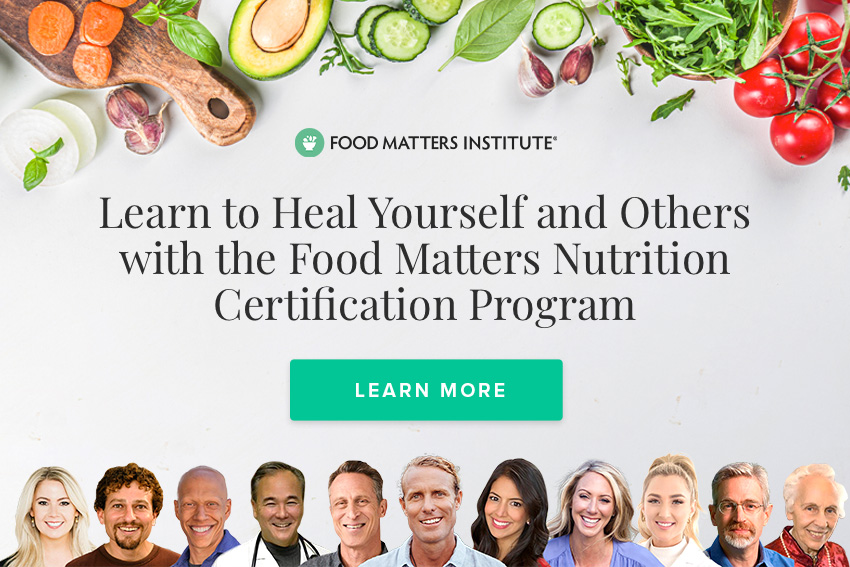The Link Between Health & Hormones
Do you ever wonder why your attempts at weight loss fail, despite seemingly doing everything right? One thing that is continuously overlooked is how our hormones play a role in this!
Ralph Moorman is the master of restoring the balance of your hormones, we sat down one-on-one with him to find out more.
Food Matters: When Did You Realize There Was A Definite Connection Between Nutrition And Hormones?
I had known for a while about the link between nutrition and hormones, but I lacked scientific evidence. When I did a search on Pubmed, twenty years ago, I came across a lot of research about hormonal medicine, but very little about hormones in connection with lifestyle. Then I experienced a personal link between nutrition and hormones. I was competing in a natural bodybuilding contest – which involves bodybuilding without the use of steroids or other drugs to promote muscle gain.
During my preparations, I tested my blood and saliva on hormones. And guess what: the hypo-caloric and very low-carb state reduced my levels of testosterone and thyroid hormone. After the contest, I tried a number of other strategies and learned to store calories as muscle mass rather than fat by collaborating with my hormones. After this experience I became even more convinced about the importance of the link between nutrition and hormones. It marked the start of my journey. I visited numerous medical and lifestyle seminars about hormones and started to advise people who were suffering from hormonal problems about their lifestyle. These practical experiences, combined with increasing research on the subject, formed the basis of my own concept. I wrote my first book, The Hormone Factor, in 2009, and have written four other ones since.
Food Matters: Are People Surprized When They Discover What Your Area Of Research Is?
More and more people are becoming aware of the importance and the fragile balance of the hormone system. Today, the idea is becoming more mainstream and new knowledge on the subject is becoming available every day. This is the perfect moment to introduce the concept to a wider audience. Especially people with medical hormonal problems are surprised to find that there is more than just medicine. After all, not every physician will tell them about the importance of nutrition and lifestyle.
Food Matters: What Is The Biggest Misconception You Would Like To Clear Up Concerning Hormones?
The biggest misunderstanding about hormones is that a hormonal balance would be just about genetics. By means of nutrition, exercise, managing our stress level, and controlling our mental state, we are indeed able to influence our hormonal balance ourselves.
Food Matters: Could You Tell Us What The Most Important Nutrients Are For Healthy Hormones?
Nutrients are important for our body to produce hormones. And, what’s more, they can also help our liver and other organs to break down hormones that are no longer needed. This break-down process is often forgotten in medical science. The liver needs nutrients from vegetables – particularly greens and brassicas – for example to break down an excess of estrogens. Other examples include nutrients like iodine and selenium for active thyroid hormones, zinc and magnesium for the production of testosterone, and amino acids like arginine and ornithine for the production of growth hormone. But not only the building blocks and cofactors to produce hormones are important.
The body also needs a good reason to produce them. Testosterone won’t be produced when you are stressed all day, growth hormone won’t be produced when you sleep for just for three hours a night, and active thyroid hormones will decline when you are in a low caloric survival status. So it’s about providing the nutrients, true, but also about a sound lifestyle and a happy life.
Food Matters: What Role Does Stress Play In Hormone Health?
Stress is very important to our hormonal state. All our lives, the body balances between a state of stress plus making energy free, and a state of storing energy plus recovery. These days, many people experience more stress than they can recover from. Technically, this means that the catabolic system (adrenalin, cortisol, energy release to cope with stress) is overloaded. In the long run, this could lead to adrenal fatigue or burnout. Many people are on the verge of a burnout, having many of the symptoms, but cannot be given a medical diagnosis.
Food Matters: Could You Give Us An Example Of A Great Success Story, From A Client Or Someone Who Has Read Your Ebook?
There are many success stories resulting from diets and lifestyles that stick close to nature. These include: remission from diabetes type 2, recovery from all kinds of inflammation-related diseases, a huge reduction of symptoms related to a wide range of autoimmune diseases, and a reduction of hormonal disorders. But the most mind-blowing to me was the following success story. A woman with the autoimmune disease Alopecia Areata had lost all her hair and eyelashes fifteen years ago. She started the Hormone Factor Programme and – within just a few months – her eyelashes returned and even a little hair has started to grow back on her head. I had never expected this hair to return after fifteen years of autoimmune attacks. This was definitely the success story of the year.
Did You Know How Important Achieving Hormonal Balance Is For Our Body?
Do you have a passion for nutrition & natural healing?. Learn more about the Food Matters Nutrition Certification Program here.










